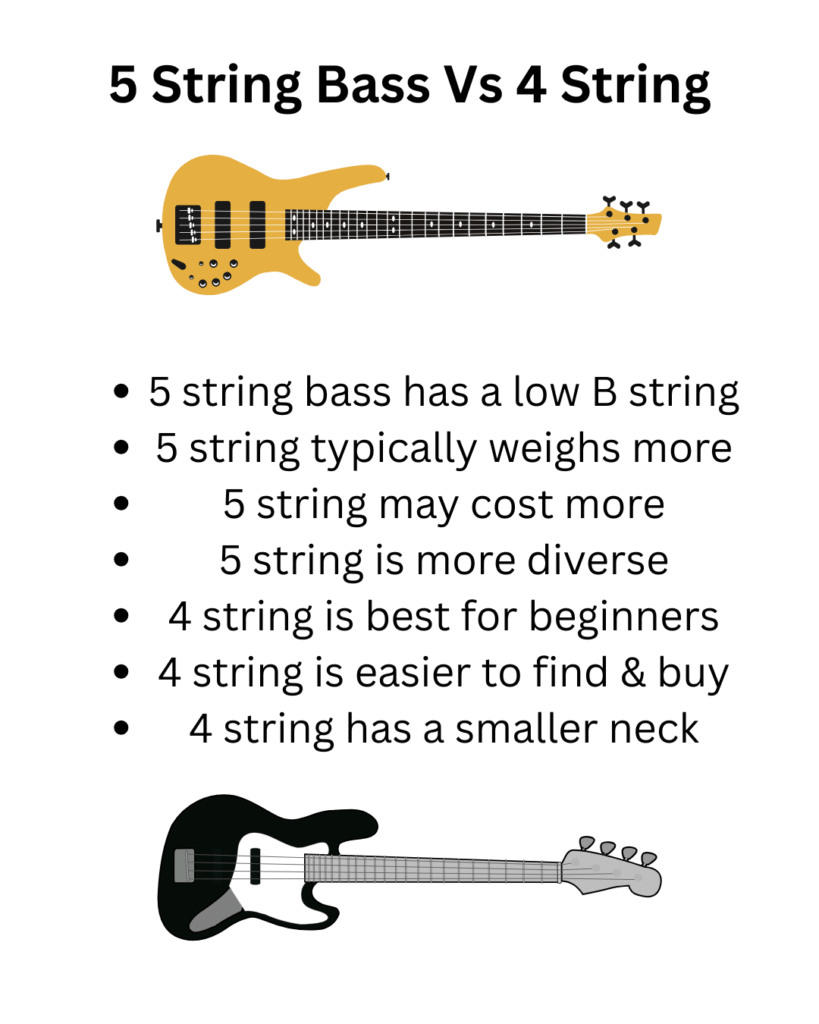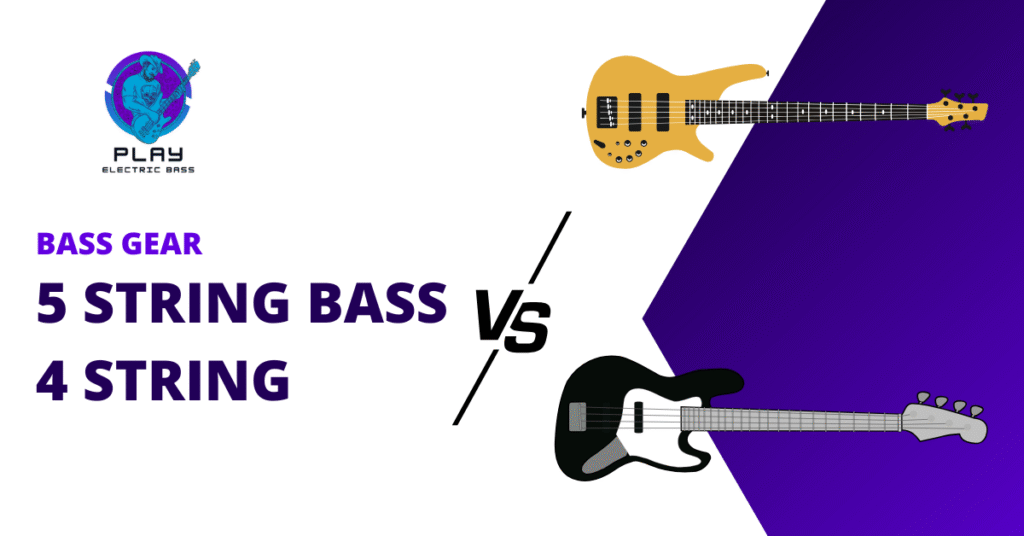Comparing 5 string bass vs 4 string bass can seem like tricky territory, but it’s actually straightforward.
It ultimately comes down to your bass playing style, goals as a musician, and comfortablity (especially for your fretting hand).
Let’s break it down fast so you can make a great choice.
Table of Contents
4 String Bass: Classic, And Effective
Standard tuning
With a 4-string bass, you’ll work with the standard bass tuning: E-A-D-G. This is especially helpful for beginners, and for bassists who don’t want to overcomplicate learning, composing, and improvising.
Weight and cost
A 4-string bass is usually lighter and more cost-effective than a 5-string bass, but it’s not a major consideration.
Regarding maintenance, the 4-string will be easier to maintain be default, because it has 1 less string than the 5-string bass.
Style
Playing with 4 strings will always be standard for conventional styles and genres like rock, funk, blues, and bass lines from classic tunes.
Neck size
The neck is easier to work with on a 4-string bass because it’s not as wide and large as a 5-string bass. This can make it easier to learn bass lines and eliminate tension in your fretting hand.
Simple verdict
The 4 string electric bass is still the gold standard in music, and there’s nothing wrong with using one. They’re easy to play, easier to learn, and more common to find and acquire. If simplicity is what you want, then stick with 4 strings instead of 5.
5 String Bass: More Range And Fun
Low B string
The low B string is the defining feature of a 5-string bass, giving you the tuning B-E-A-D-G. This allows you to hit deeper notes, which can help your bass lines stand out and sound epic. This is great for metal, gospel music, and modern genres/ styles.
Less moving around
A 5-string bass gives you access to more notes, which makes it easier to stay in one position. This allows you to play in one or multiple keys without shifting so much around the fretboard.
Usually heavier
5-string bass guitars are generally heavier due to their big necks and extra string, but not much heavier. Go out and play a 5-string bass, and compare its weight to a conventional 4-string to see if the weight difference matters to you.
Often more expensive
A 5-string bass will usually cost more money than a similar 4-string counterpart, but it’s worth it if you want more versatility from your bass.
Also, the cost differences usually aren’t too big, so it’s not a major concern for many bassists.
Simple Verdict
If you’re ready to take your bass playing to the next level, you’ll want to consider a 5 string bass guitar. The extended range gives you more options for writing and improvising, and the low notes sound awesome.
Which One Should You Choose?
Let’s make it easy for you to choose.
- Beginners & traditional bass players: Start with a 4-string. Only upgrade after you’ve learned fundamentals and desire more
- Intermediate & advanced bassists: You’ll love playing with 5 strings if you want more low end and access to extra notes in every position of the neck.
- Studio or gigging musicians: Many of them prefer 5 strings for the flexibility in tuning, improvising, and composing.
Infographic

Final Thoughts: 5 String Bass vs 4 String Bass
As you can see, there’s no wrong choice. It boils down to preferences and experience.
The 4-string bass is simple to learn, reliable in all genres, and easier to track down when buying a bass.
The 5-string bass gives you the low B string, which extends your range, leading to more versatility and more options for fretboard visualization.
Overall, pick the bass that fits your music, style, hands, and bass playing goals.
There’s no wrong choice. A 4 string bass guitar is simple, iconic, and reliable. A 5 string bass gives you extended range and versatility. Pick the one that fits your music, your hands, and your goals.

